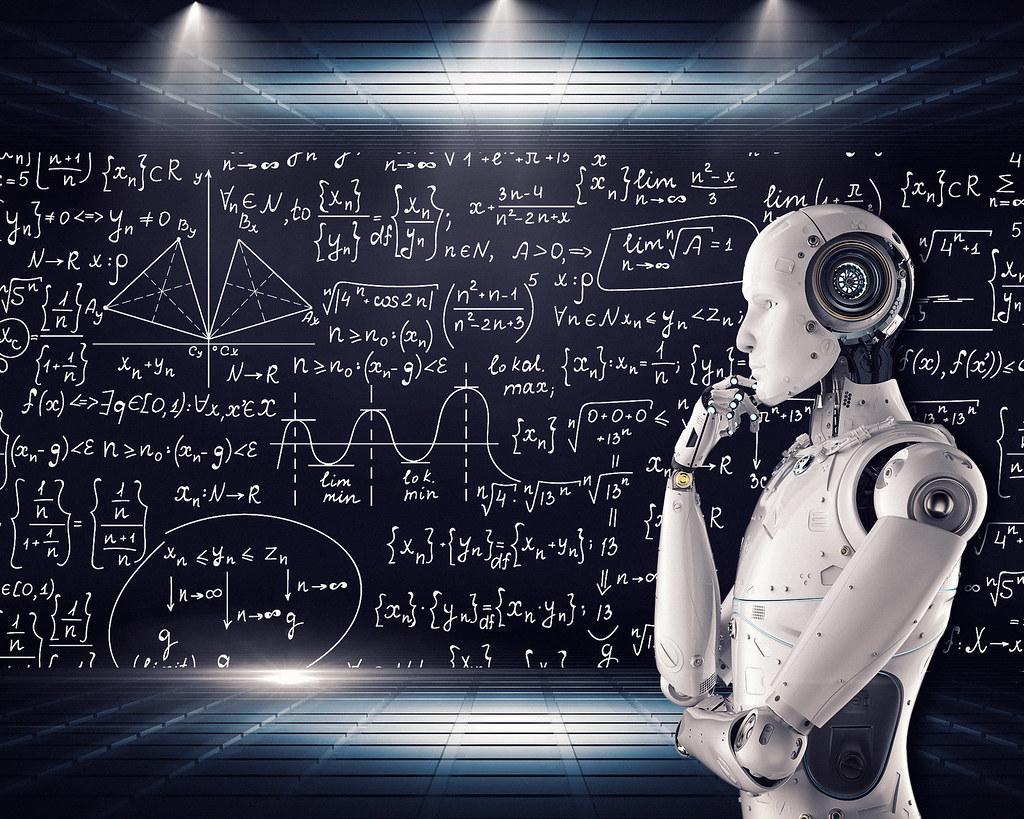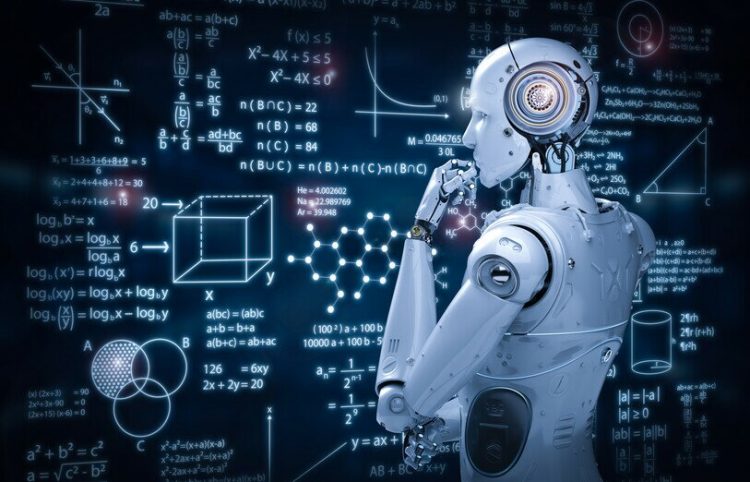Introduction
As we stand on the cusp of the artificial intelligence (AI) revolution, it is clear that AI will have a transformative impact on the global economy and workforce. The rapid advancements in machine learning, robotics, and natural language processing are reshaping industries and changing the way we work. While AI has the potential to create new job opportunities, it also poses a significant threat to existing roles, particularly those that involve repetitive tasks, data processing, and other activities that can be automated.
In this article, we will explore how AI is likely to affect various professions, which jobs are most vulnerable to automation, and what skills workers will need to thrive in the age of artificial intelligence. While the rise of AI may cause disruption, it also presents an opportunity for individuals to adapt, upskill, and contribute to the development of a new economy that is driven by advanced technologies.
1. The Rise of Artificial Intelligence and Its Impact on the Workforce
Artificial intelligence refers to the simulation of human intelligence processes by machines, particularly computer systems. These processes include learning, reasoning, and self-correction, and AI technologies can perform tasks that traditionally required human intervention. The core AI technologies that are driving this transformation include:
- Machine learning: The ability of AI systems to learn from data and improve over time without explicit programming.
- Natural language processing (NLP): The capability of AI to understand and generate human language, enabling machines to perform tasks such as language translation, sentiment analysis, and customer service.
- Robotics and automation: Physical robots and software bots that can perform physical or cognitive tasks with minimal human intervention.
These technologies are already being used in various industries to increase efficiency, reduce costs, and improve decision-making. As AI continues to evolve, it is expected to take over many routine and manual jobs, leading to widespread job displacement. The question is: which occupations are most at risk, and how can workers prepare for the future?
2. The Most Vulnerable Jobs to AI and Automation
While AI has the potential to revolutionize nearly every aspect of the economy, certain jobs are at a higher risk of automation due to their repetitive, rule-based, and predictable nature. Below are some of the professions most likely to be affected by AI-driven automation.
2.1 Manufacturing and Assembly Line Jobs
For decades, manufacturing has been an industry where automation has played a critical role in increasing productivity. With the rise of AI-powered robotics, factory and assembly line jobs are increasingly being performed by machines. Robots can now assemble, package, and inspect products with greater speed, precision, and consistency than human workers.
- Automobile manufacturing: Robots in car factories can handle tasks such as welding, painting, and assembly with high efficiency and minimal error.
- Electronics production: AI-powered systems can perform tasks like circuit board assembly, testing, and quality control, significantly reducing the need for human workers.
Jobs in production lines or those requiring repetitive, manual labor are particularly vulnerable. This includes positions like machine operators, quality inspectors, and warehouse staff who perform tasks that can be easily automated.
2.2 Data Entry and Administrative Roles
Jobs that involve routine data entry, administrative support, and information processing are at high risk of being replaced by AI. Software tools powered by machine learning and natural language processing (NLP) can automate tasks like data input, file management, scheduling, and document review.
- Data entry clerks: AI systems can be trained to recognize patterns, fill forms, and transfer information into databases much faster than human workers.
- Customer service representatives: AI-powered chatbots and virtual assistants can handle customer inquiries, troubleshoot issues, and process transactions without the need for human intervention. For example, chatbots used by companies like Amazon and Bank of America are already providing customer service, answering questions, and resolving problems in real-time.
Positions such as administrative assistants, bookkeepers, and data entry clerks will increasingly be replaced by AI and automation tools designed to perform these tasks more efficiently.
2.3 Retail and Customer Service Jobs
The retail and customer service industries are already seeing the impact of automation, and this trend is expected to accelerate. AI technologies like self-checkout kiosks, smart shelves, and robotic assistants are beginning to replace human workers in stores, particularly in roles like cashiering and inventory management.
- Cashiers: With the advent of automated checkout systems, consumers can now scan and pay for their items without the need for a human cashier. Retail giants like Walmart and Amazon Go are already using this technology in their stores.
- Customer support agents: Chatbots and virtual assistants powered by AI are increasingly being used to handle basic customer inquiries, freeing human agents to focus on more complex problems.
While the shift toward automation in retail is still in its early stages, it is expected to grow as more businesses adopt AI technologies to streamline operations and reduce costs.
2.4 Transport and Delivery Jobs
The transportation and delivery industries are undergoing a significant transformation due to AI and automation. From self-driving cars to delivery drones, AI is being used to improve logistics, reduce human error, and make transportation safer and more efficient.
- Truck drivers: Self-driving trucks, powered by AI and autonomous vehicle technology, could replace millions of long-haul truck drivers in the coming decades. Companies like Waymo and Tesla are already testing autonomous trucks.
- Delivery drivers: Drones and autonomous delivery robots are already being used to deliver packages, particularly in urban areas, and this trend is expected to expand. Companies like Amazon and Uber Eats are exploring drone and robotic delivery systems.
As AI and autonomous vehicles continue to improve, jobs in transportation and delivery will be at increasing risk.
2.5 Financial Analysts and Accountants
In the financial sector, AI technologies are revolutionizing how analysts and accountants process data, perform analysis, and manage financial tasks. Machine learning algorithms can now analyze vast amounts of data, predict market trends, and provide real-time financial advice.
- Financial analysts: AI-powered tools can quickly sift through large datasets, identify market patterns, and generate investment recommendations, making human analysts less necessary in certain areas.
- Accountants: AI and robotic process automation (RPA) are already being used for tasks such as bookkeeping, tax filing, and auditing. These systems can perform calculations, detect fraud, and generate reports more accurately and faster than human accountants.
As AI continues to evolve, roles in the financial sector, especially those focused on repetitive tasks or data analysis, will likely be displaced.

3. How Can Workers Prepare for the AI Revolution?
While the rise of AI presents challenges for workers in certain industries, it also creates new opportunities for those who are able to adapt. Here are some strategies for workers to future-proof their careers and stay relevant in an AI-driven world:
3.1 Embrace Lifelong Learning and Upskilling
As automation replaces repetitive jobs, workers should focus on developing skills that AI cannot replicate—such as critical thinking, creativity, and emotional intelligence. Pursuing advanced education, specialized training, and online courses in fields like data science, AI development, robotics, and digital marketing will position workers to thrive in the evolving job market.
3.2 Focus on Jobs that Require Human Interaction and Emotional Intelligence
AI may be able to automate certain technical tasks, but human interaction and emotional intelligence are areas where humans still have a distinct advantage. Professions in healthcare, education, counseling, and management require empathy, problem-solving, and interpersonal skills that AI cannot replicate.
3.3 Transition to Emerging Technologies
Industries like AI development, robotics, blockchain, and clean energy are expected to see significant growth in the coming years. Workers can pivot into these areas by gaining experience in emerging technologies, which will offer high-demand, high-skill jobs that AI cannot easily replace.
4. Conclusion
The rise of artificial intelligence is poised to reshape the global workforce, and while it will inevitably lead to job displacement in certain industries, it also presents significant opportunities for those willing to adapt. Occupations that involve repetitive, manual, or rule-based tasks are the most vulnerable to automation, while roles that require creativity, empathy, and critical thinking will be less impacted. Workers must be proactive in reskilling and upskilling to stay relevant and thrive in the AI-driven economy.
By embracing lifelong learning, focusing on human-centered skills, and transitioning to emerging fields, individuals can ensure that they remain valuable contributors to the workforce in the age of artificial intelligence.













































